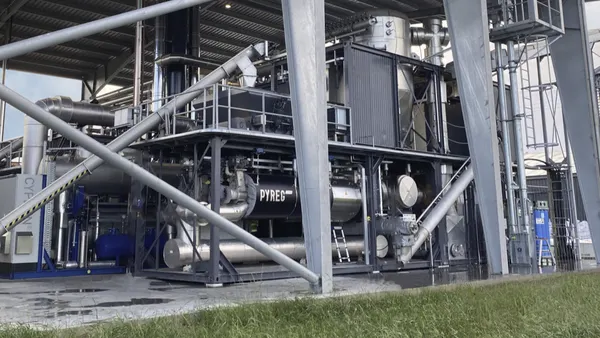Dive Brief:
- The Materials Innovation and Recycling Authority (MIRA), which handles trash from more than 50 Connecticut municipalities, plans to hire a company to redevelop an outdated waste-to-energy plant in Hartford. Inadequate equipment occasionally requires the plant to shut down and ship trash out of state.
- The new plant, expected to be operational in 2023, will focus on composting and other biological processes to break down biodegradable materials, with a goal to double trash recycling to 60%.
- MIRA annually recycles 65,000 tons and burns garbage to produce energy sold to New England’s power grid. Operating revenue recently fell 20%, largely due to a division closing and cut rates for trash disposal — though 38% of the reduced revenue is attributed to a 30% reduction in energy production over the same period in 2014.
Dive Insight:
While upgraded equipment and technology — coupled with the goal of doubling the recycling rate — are projected to make a substantial difference in Hartford’s ability to divert from the landfill and turn waste to energy, the state is still challenged by declining wholesale electricity prices, a trend that is impacting waste-to-energy plants nationwide. Energy Recovery Council President Ted Michaels said the trend is creating a "tough market to operate in."
The agency is one of 20 facilities in New England using municipal solid waste for its primary fuel source, generating 2.4% of the region’s electricity in 2014, according to ISO-New England, the region’s grid operator. Despite declining sales, continuing to focus on electricity seems to make sense. It’s a way to free up landfill space while increasing renewable resources.









